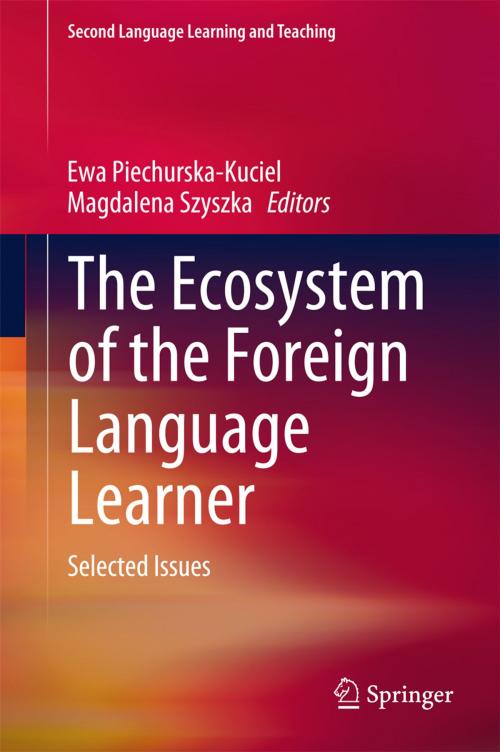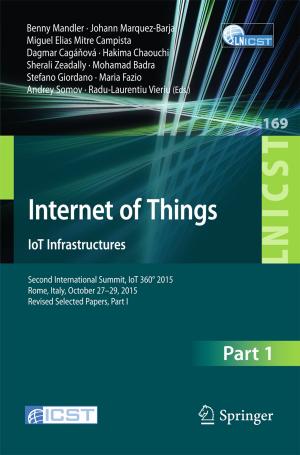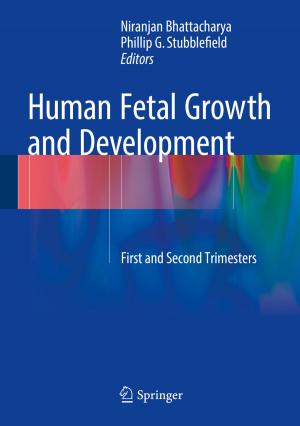The Ecosystem of the Foreign Language Learner
Selected Issues
Nonfiction, Reference & Language, Education & Teaching, Teaching, Language Experience Approach, Language Arts, Linguistics| Author: | ISBN: | 9783319143347 | |
| Publisher: | Springer International Publishing | Publication: | March 12, 2015 |
| Imprint: | Springer | Language: | English |
| Author: | |
| ISBN: | 9783319143347 |
| Publisher: | Springer International Publishing |
| Publication: | March 12, 2015 |
| Imprint: | Springer |
| Language: | English |
This volume examines selected aspects of the foreign language learning process from an ecological perspective, adopting a holistic view on complex interrelations among and within organisms (L2 language learners) and their milieus (family, school and society). First of all, the personal ecosystem of the learner is taken into consideration, whereby two powerful influences are intertwined: cognitive and affective aspects. The learning space formed by the individual is largely shaped by their affective states coexisting in conjunction with their cognitive processes. Moreover, this specific space is also modified by a wider array of other personal ecosystems or those of cultures. Hence, the ecosystem of the foreign language learner is also subject to influences coming from sociocultural leverage that can be represented by people they know, like parents and language teachers, who can both directly and indirectly manipulate their ecosystem. At the same time other important forces, such as culture as a ubiquitous element in the foreign language learning process, also have the power to shape that ecosystem. Accordingly, the book is divided into three parts covering a range of topics related to these basic dimensions of foreign language acquisition (the cognitive, affective and socio-cultural). Part I, Affective Interconnections, focuses on the body of original empirical research into the affective domain of not only L2 language learners but also non-native language teachers. Part II, Cognitive Interconnections, reports on contributions on language learners’ linguistic processing and cognitive representations of concepts. The closing part, Socio-cultural Interconnections, provides new insights into language learning processes as they are affected by social and cultural factors.
This volume examines selected aspects of the foreign language learning process from an ecological perspective, adopting a holistic view on complex interrelations among and within organisms (L2 language learners) and their milieus (family, school and society). First of all, the personal ecosystem of the learner is taken into consideration, whereby two powerful influences are intertwined: cognitive and affective aspects. The learning space formed by the individual is largely shaped by their affective states coexisting in conjunction with their cognitive processes. Moreover, this specific space is also modified by a wider array of other personal ecosystems or those of cultures. Hence, the ecosystem of the foreign language learner is also subject to influences coming from sociocultural leverage that can be represented by people they know, like parents and language teachers, who can both directly and indirectly manipulate their ecosystem. At the same time other important forces, such as culture as a ubiquitous element in the foreign language learning process, also have the power to shape that ecosystem. Accordingly, the book is divided into three parts covering a range of topics related to these basic dimensions of foreign language acquisition (the cognitive, affective and socio-cultural). Part I, Affective Interconnections, focuses on the body of original empirical research into the affective domain of not only L2 language learners but also non-native language teachers. Part II, Cognitive Interconnections, reports on contributions on language learners’ linguistic processing and cognitive representations of concepts. The closing part, Socio-cultural Interconnections, provides new insights into language learning processes as they are affected by social and cultural factors.















